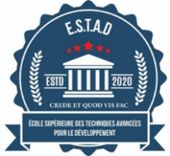A descriptive study of treatment demands for drug use in Mali
DOI :
https://doi.org/10.5281/hra.v1i3%20Jul-Aug-Sep.4817Mots-clés :
Droges, traitement, Psychiatrie, BamakoRésumé
RÉSUMÉ
Introduction. Selon le rapport mondial de 2020, environ 284 millions de personnes âgées de 15 à 64 ans ont consommé au moins une drogue au cours des 12 derniers mois de l'année écoulée. Ce travail visait à décrire les caractéristiques socio-démographiques, les modes de consommation et les demandes de prise en charge des personnes pour troubles des usages de drogues dans le service de psychiatrie du CHU Point G au Mali. Matériels et méthodes. Il s'est agi d'une étude transversale et descriptive dont les données ont été collectées sur la période de janvier 2022 à décembre 2022. Le questionnaire du Réseau Ouest- Africain d’Epidémiologie sur la Consommation de Drogue a été utilisé pour la collecte des données. Résultats. Les données ont été recueillies auprès de 161 patients qui ont demandé un traitement pour usage de drogues. Les hommes étaient majoritaires avec 93,2 %. La tranche d'âge des 15-25 ans représentait 62,1 %. Les célibataires représentaient 81,4 %. Les patients ayant un niveau d'études primaires représentaient 41,1 %. Les patients sans profession représentaient 36,0 %. Les patients qui résidaient en milieu urbain représentaient 87,6 %. Les drogues les plus consommées étaient le cannebis (75,8%), l'alcool (45,3%), le tabac (34,2%), le tramidol (24,8%), la cocaïne (18,6%) et l'héroïne (9,9%). Le mode de consommation le plus représenté était la polyconsommation, soit 73,9 %. La consommation de drogue était associée à un autre diagnostic psychiatrique chez 44,1 % des patients. Conclusion. Il existe une nécessité de renforcer les services de prévention et de prise en charge des problèmes liés à la drogue au Mali, en tenant compte des spécificités du contexte local.
ABSTRACT
Introduction. According to the global report in 2020, approximately 284 million people aged 15 to 64 used at least one drug in the last 12 months of the past year. This work aimed to describe the socio-demographic characteristics, consumption patterns and treatment requests of people for drug use disorders in the psychiatry department of the University Hospital Center Point G in Mali. Materials and methods. This was a cross-sectional and descriptive study, the data of which was collected over the period from January 2022 to December 2022. The questionnaire of the West African Epidemiology Network on Drug Consumption (West African Epidemiology Network on Drug Use (WENDU)) was used for data collection. Results. Data was collected from 161 patients who sought treatment for drug use. Men were in the majority with 93.2%. The 15-25 age group represented 62.1%. Singles accounted for 81.4%. Patients with a primary education level accounted for 41.1%. Patients without professions accounted for 36.0%. Patients who resided in urban areas accounted for 87.6%. The most used drugs were cannebis (75.8%), alcohol (45.3%), tobacco (34.2%), tramndol (24.8%), cocaine (18.6%). and heroin (9.9%). The most represented mode of consumption was polyconsumption, i.e., 73.9%. Drug use was associated with another psychiatric diagnosis in 44.1% of patients. Funding for patient treatment was provided by the family in 82,6%. Conclusion. The study highlights the need to strengthen services for the prevention and management of drug-related problems in Mali, considering the specificities of the local context.
Téléchargements
Publié-e
Comment citer
Numéro
Rubrique
Licence
Authors who publish with this journal agree to the following terms:
- Authors retain copyright and grant the journal right of first publication with the work simultaneously licensed under a Creative Commons Attribution License CC BY-NC-ND 4.0 that allows others to share the work with an acknowledgement of the work's authorship and initial publication in this journal.
- Authors are able to enter into separate, additional contractual arrangements for the non-exclusive distribution of the journal's published version of the work (e.g., post it to an institutional repository or publish it in a book), with an acknowledgement of its initial publication in this journal.
- Authors are permitted and encouraged to post their work online (e.g., in institutional repositories or on their website) prior to and during the submission process, as it can lead to productive exchanges, as well as earlier and greater citation of published work










